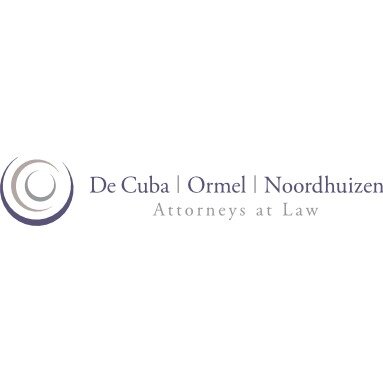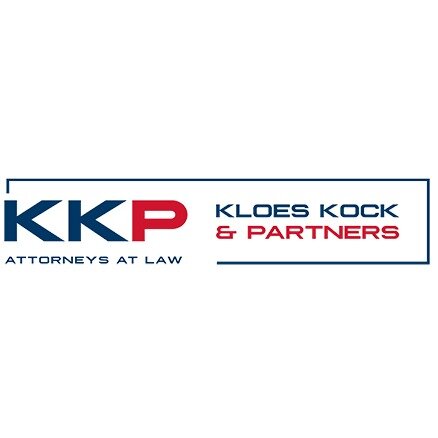Best Antitrust Litigation Lawyers in Aruba
Share your needs with us, get contacted by law firms.
Free. Takes 2 min.
Or refine your search by selecting a city:
List of the best lawyers in Aruba
About Antitrust Litigation Law in Aruba
Antitrust litigation in Aruba focuses on preventing unfair business practices that restrict competition within the market. The purpose of antitrust laws is to encourage a healthy, competitive business environment in Aruba that benefits both consumers and businesses. While Aruba is a constituent country within the Kingdom of the Netherlands, it has its own legal system and regulatory framework. The core aim of antitrust law is to prevent activities such as price-fixing, abuse of dominance, collusion, and unfair mergers or acquisitions that may harm the market or consumers.
Why You May Need a Lawyer
Legal assistance in antitrust litigation is important for individuals and businesses who are either under investigation for potentially anti-competitive conduct or feel they are being harmed by another business's unfair practices. Common situations where legal help is essential include:
- Facing allegations of price-fixing, collusive bidding, or other anti-competitive agreements
- Being accused of abusing a dominant market position
- Challenging a merger or acquisition that might reduce competition
- Experiencing unfair trade practices by competitors
- Seeking guidance on compliance with regulatory standards
- Filing complaints regarding anti-competitive behavior affecting your business
An experienced antitrust lawyer understands the complexities of local and international market regulations and can help protect your rights, defend your interests, and provide advice on compliance.
Local Laws Overview
Antitrust law in Aruba is shaped by local legislation that is influenced by broader Dutch and European principles. These laws are designed to ensure fair competition and to regulate the conduct of businesses operating in Aruba. Key aspects include:
- The prohibition of agreements that restrict competition, such as price-fixing or market-sharing
- Rules against the abuse of a dominant position by one or several businesses
- Regulations concerning mergers and acquisitions that could significantly reduce competition in a market
- Government oversight through regulatory authorities that investigate and enforce antitrust rules
- Provisions for civil litigation and remedies for victims of anti-competitive behavior
Since antitrust laws can evolve and may be interpreted differently by the courts, expert legal advice is often necessary for complex disputes.
Frequently Asked Questions
What is antitrust litigation in Aruba?
Antitrust litigation involves legal proceedings related to allegations of anti-competitive behavior, such as collusion, abuse of dominance, or unfair mergers that restrict competition in the Aruban market.
Who enforces antitrust laws in Aruba?
Enforcement is handled by certain governmental departments and regulatory authorities in Aruba, with oversight and guidance rooted in both local and Kingdom of the Netherlands statutes.
What are common types of anti-competitive practices addressed by these laws?
Common practices include price-fixing, bid rigging, market allocation, abuse of dominant position, and mergers that lessen competition.
Can individuals file complaints or lawsuits regarding anti-competitive behavior?
Yes, both businesses and individuals can file complaints with regulatory bodies or pursue civil litigation if they believe they have been harmed by anti-competitive conduct.
What actions can be taken against companies that violate antitrust laws?
Actions include investigations, administrative penalties, fines, orders to cease specific practices, and civil liability for damages.
Are all mergers or acquisitions subject to antitrust scrutiny?
Not all, but mergers or acquisitions that have the potential to significantly impact the competitive landscape may be reviewed or challenged under antitrust laws in Aruba.
How do I know if my business is compliant with Aruba’s antitrust regulations?
Compliance assessments are best performed with the assistance of a legal professional knowledgeable in Aruban antitrust law, who can review business practices and advise on necessary changes.
What are the penalties for violating antitrust laws in Aruba?
Penalties may include fines, orders to cease certain business activities, and, in some cases, compensation for damages caused to victims of anti-competitive practices.
How long does an antitrust investigation or litigation typically take?
The timeframe depends on the complexity of the case, the extent of the investigation, and the legal processes involved. Simple cases may be resolved in a few months, while complex cases can take years.
Can international companies operating in Aruba be subject to antitrust laws?
Yes. Any company conducting business in Aruba is subject to local antitrust laws, regardless of where the company is headquartered.
Additional Resources
For further information or assistance, the following resources can be helpful:
- The Public Prosecutor’s Office of Aruba - for criminal enforcement matters
- Court of First Instance of Aruba - for civil litigation procedures
- Department of Economic Affairs, Commerce and Industry - for regulatory guidance and complaints
- Local Bar Association - for assistance in finding qualified antitrust lawyers
- Chamber of Commerce Aruba - for business compliance advice and resources
Next Steps
If you believe your business might be at risk of antitrust violations, or if you have been harmed by anti-competitive practices, it is important to consult a qualified lawyer experienced in antitrust litigation in Aruba. Begin by gathering all relevant documents, such as contracts, correspondence, and evidence of the suspected behavior. Reach out to one of the government agencies or professional organizations listed above for further guidance or for referral to a lawyer. Taking prompt action can help protect your interests and contribute to maintaining a fair marketplace in Aruba.
Lawzana helps you find the best lawyers and law firms in Aruba through a curated and pre-screened list of qualified legal professionals. Our platform offers rankings and detailed profiles of attorneys and law firms, allowing you to compare based on practice areas, including Antitrust Litigation, experience, and client feedback.
Each profile includes a description of the firm's areas of practice, client reviews, team members and partners, year of establishment, spoken languages, office locations, contact information, social media presence, and any published articles or resources. Most firms on our platform speak English and are experienced in both local and international legal matters.
Get a quote from top-rated law firms in Aruba — quickly, securely, and without unnecessary hassle.
Disclaimer:
The information provided on this page is for general informational purposes only and does not constitute legal advice. While we strive to ensure the accuracy and relevance of the content, legal information may change over time, and interpretations of the law can vary. You should always consult with a qualified legal professional for advice specific to your situation.
We disclaim all liability for actions taken or not taken based on the content of this page. If you believe any information is incorrect or outdated, please contact us, and we will review and update it where appropriate.
Browse antitrust litigation law firms by city in Aruba
Refine your search by selecting a city.











